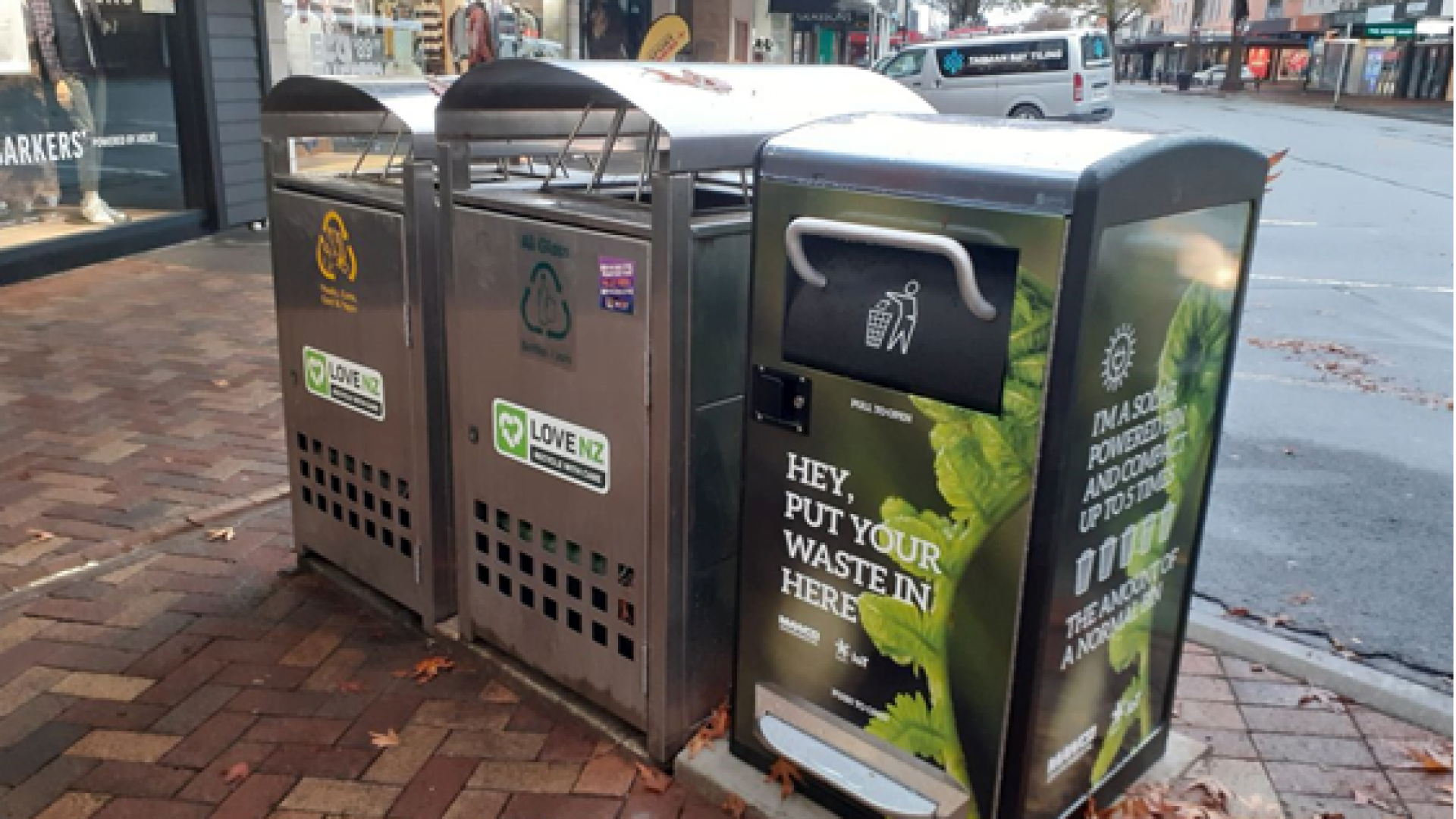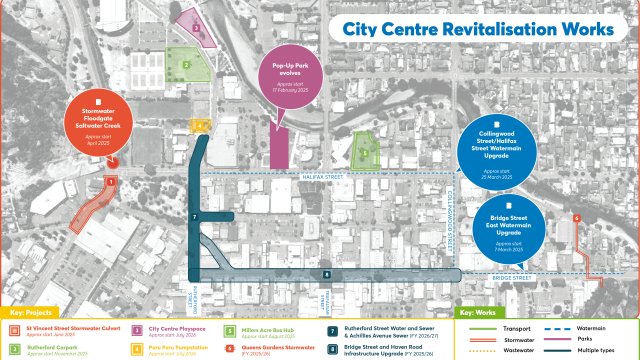More waste, less haste – successful trial of solar-compacting bin in Nelson’s central city
29/03/2022 9:30am
Results from a Nelson City Council and Spark New Zealand joint trial of a ‘smart’ solar-compacting bin in Nelson’s city centre, shows that collection frequency is reduced by more than 50 per cent.
The trial bin, on loan to Nelson City Council from Bigbelly bins, is equipped with a small solar-powered compactor. A sensor inside the bin activates the compactor, which crushes the rubbish, allowing the bin to hold up to five times more than a standard New Zealand rubbish bin.
Because the bin does not have to be emptied so frequently, there are a number of flow-on benefits such as a reduction in emissions and traffic congestion due to fewer rubbish trucks being on the roads, lower operating costs and improved staff efficiency.
World Economic Forum research has shown, using digital technology, such as smart bins, could help cut global carbon emissions by 15 per cent.
“Based on the data being collected in this trial, installation of these bins will contribute to a huge reduction in annual central city bin empties, taking the number of from 49,000 to 22,000,” says Infrastructure Committee Chair, Councillor Brian McGurk.
“The aim here is to reduce vehicle use and emissions, but also on another level, it’s about reducing unnecessary work for our drivers, especially out of hours.”
Fifty four new bins will replace the old cast iron rubbish bins in the central city. The bins will be paid for from Council’s Solid Waste closed account, which is self-funded through sources such as landfill waste levies, and not directly funded from rates.
“Visually the bins are very attractive, and can accommodate artwork, images or public messaging on all four sides of the bin,” says McGurk. “The smart bin lids (like clothing bins) have a drawer opening that has to be pulled open via a handle or foot pedal, making them rodent and seagull-proof.”
Spark New Zealand’s Internet of Things (IoT) sensors installed in the bins determine the volume of material inside and feed real-time information via the Spark IoT network back to Nelson City Council’s waste management contractors, who receive an alert when the bins are full and require emptying.
Spark IoT lead, Tony Agar, says that IoT plays a crucial role in facilitating management, engineering, operations and maintenance staff to share important information and solve problems faster.
“IoT technology can make a significant, positive impact on our nation’s social, environmental and economic wellbeing.
“The simple change from old city bins to IoT connected smart bins means our city councils will have more visibility and control of their infrastructure. In this instance, instead of rubbish trucks driving around the city for hours checking if bins are full, they will now be alerted when to go to and empty the bin at a rate which is 50% less than it was before. This is another example of an IoT solution that improves productivity and efficiency, whilst addressing sustainability.”
Installation of the new solar-compacting bins in the Nelson city centre is expected to begin in April 2022.




